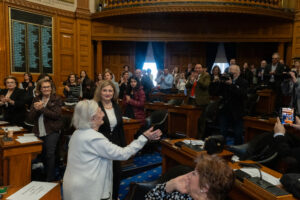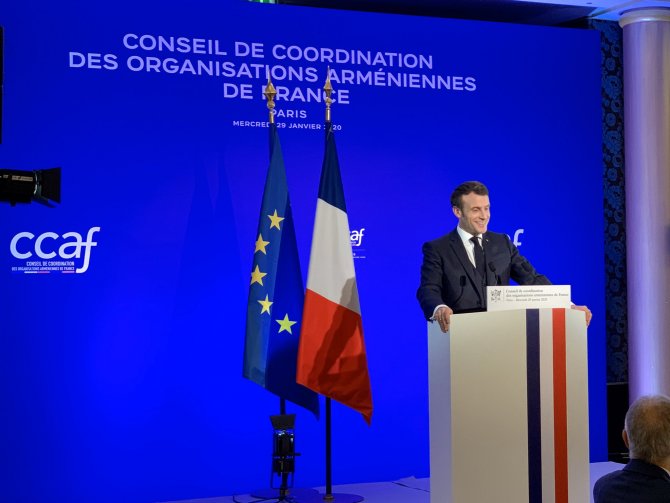PARIS (Combined Sources) — At the request of President Macron and the Minister for Europe and Foreign Affairs, France is establishing a structured effort to assist Armenians affected by the conflict in Nagorno-Karabakh.
Coordinated by a steering committee at the Ministry for Europe and Foreign Affairs’ Crisis and Support Center, this mechanism mobilizes the efforts of the government, associations promoting solidarity with Armenia, humanitarian organizations belonging to Coordination Sud, corporate foundations and hospitals. It focuses on three areas.
- After initial emergency actions in recent weeks involving the dispatch of surgeons and medical/surgical supplies to Armenia, several humanitarian flights have been organized. An initial cargo plane leased by the Ministry for Europe and Foreign Affairs arrived in Yerevan this afternoon. It was transporting items donated by French authorities: emergency medical equipment, and in particular a Mobile Medical Station allowing for the care of 500 people as well as blankets and hygiene kits to be distributed to people affected by the conflict.
A second flight has been scheduled for November 27. Its cargo will include State resources, donations collected from associations promoting solidarity with Armenia such as the Aznavour Foundation and the Union Générale Arménienne de Bienfaisance, and humanitarian cargo supplied by humanitarian organizations and corporate foundations.
- Following on from the medical missions conducted since October, the second area of focus involves stepping up cooperation between hospitals in both countries. This will be facilitated by financial support from the Ministry for Europe and Foreign Affairs. In France, the public hospitals of Paris, Marseille and Lyon have already been mobilized.
- The third area focuses on supporting projects instituted in Armenia by humanitarian organizations and UN agencies. France will provide direct financial support for these structures that are active on the ground.
Finally, local governments, some of which are already actively supporting projects in Armenia, have been invited to contribute to these three areas of focus.
This mechanism for providing humanitarian assistance comes in response to the emergency situation created by the conflict in Nagorno-Karabakh in recent weeks.
Ambassador of France to Armenia Jonathan Lacôte posted the following on his Facebook page on November 22:










